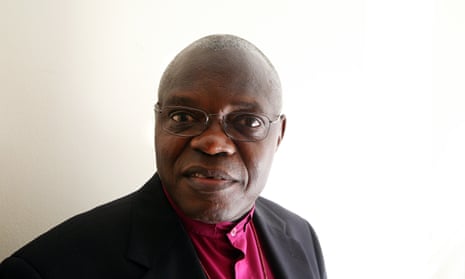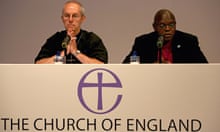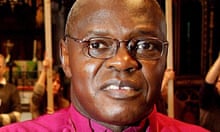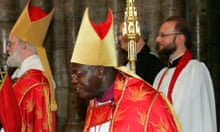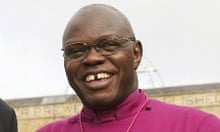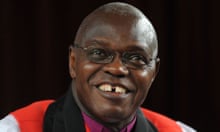The archbishop of York has said he is “deeply ashamed” after a report into allegations of child abuse by a former cathedral dean found “systemic failures” by the Church of England.
Dr John Sentamu’s comments followed a judge’s findings of failures by the church in its response to allegations of sex abuse made against the late Robert Waddington, dean of Manchester from 1984 to 1993.
Judge Sally Cahill QC said Sentamu’s predecessor as archbishop, Lord Hope of Thornes, failed to follow policy and take advice after he was informed of complaints against Waddington relating to boys in Manchester and Australia.
At least two men made claims of abuse in 1999 and at sometime in 2003-4. Several others spoke to the inquiry and said they too had been subject to sexual abuse by the dean, who died from cancer in 2007.
Sentamu said that after listening to those who had made allegations against the senior clergyman, he had pressed the Church of England to undertake a legal and theological study on the secrecy of confession, so that child abusers could not be protected from justice by the confidentiality of the confessional.
Cahill’s report found: “Our conclusion, having heard his [Hope’s] evidence is that his concern for the welfare of Robert Waddington seems to have been paramount in his response to these allegations.”
Referring to systemic failures, it said: “Appropriate referrals would not have taken place in any of the years 1999, 2003 and 2004 because the decision making was in the hands of those not qualified or sufficiently experienced in child protection to make those decisions.”
It added Hope’s “cumulative” failings meant “opportunities were missed” to start an investigation which might have led to a prosecution before Waddington’s death.
The report detailed a range of allegations against Waddington that were first made to the Church in 1999 but dated back as far as the 1950s.
Those who made allegations described abuse in Manchester, York, London, Carlisle and in Queensland, Australia.
Hope has denied suggestions of a coverup over the allegations against Waddington, and has said he is disappointed that the report raised concerns about how the cases were handled. When allegations were reported to him 15 and 12 years ago, they were “unspecific” and he has never been told the full details, he said. There was no recommendation at the time that allegations should be reported to the police, he said.
Sentamu said: “I have already been in contact with those who gave evidence to the inquiry regarding their alleged abuse by Robert Waddington. As I have said to them, I am deeply ashamed that the church was not vigilant enough to ensure that these things did not happen, failing both to watch and to act, where children were at serious risk.”
He said he accepted the report’s conclusion that “irrespective of policies in force, there was a systemic failure”.
He said: “Although the report notes no one has come forward to say they were abused by Robert Waddington after the first complaint was made in 1999, what stands out is that between 1999 and 2004 those in senior positions responsible for taking decisions in these matters were ‘not qualified or sufficiently experienced in child protection’.”
Responding to the report, Hope said: “It is matter of great regret to me that 12 years ago when the non-specific anonymous allegations were first made in Manchester, the church and I myself were not more proactive in seeking out and/or assisting a reluctant complainant.
“Nor is it any comfort that other organisations were no more diligent at that time when dealing with similar situations.
“If either of the two persons concerned feel in the light of this report they have been denied the justice they deserve then on behalf of the church I offer my personal and profound apology.”
Canon law forbids priests from disclosing what they are told in the confessional. Sentamu said one of the men had asked him to consider whether disclosures in confession which raised safeguarding issues should enjoy “absolute confidentiality” .
The archbishop said: “I have every sympathy with this view and therefore welcome the fact that the Archbishops’ Council has decided to commission theological and legal work with a view to exploring whether the current position in relation to admissions of abuse in the context of formal confession should be changed.”
He added that he had also been asked by former choristers at Manchester Cathedral to stress the need for all choristers to be accompanied by suitable trained adults as chaperones.
